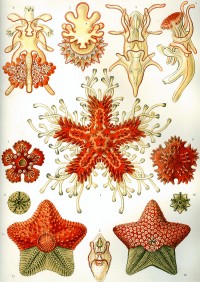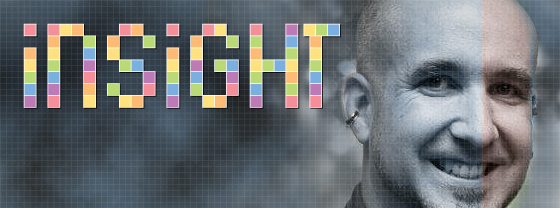
One of biology’s longest standing mysteries was explaining how complex life emerged from simpler chemical structures.
When the 19th century German embryologist Wilhelm Roux looked down the microscope at a frog’s egg, he saw a machine. A tiny, perfect molecular machine with chemical cogs and atomic gears. Life was analogically—indeed, almost literally—based on complex organic machinery. “Lehre von den Ursachen der organischen Gestaltungen,” he wrote[1]. Developmental mechanics is the cause of the organic form.
But Wilhelm had a rather big problem to solve. Cells reproduce by splitting in half before growing. Divide a machine and all you get is two simpler machines, each with half of their original pieces. How does something grow in complexity as its components seem to grow in simplicity?
The answer wouldn’t come for half a century. In the meantime, an old fashioned belief in ghostly forces would have one last opportunity to prove itself worthy of being considered scientific.
Fire and gods
Life feels like a binary condition. Academically speaking we know better, even as we typically think about objects as either alive or not alive. At its most personal we’re either living or dead, with little consideration for the in-betweens. Trees grow and drop seeds, rocks don’t. So it should come as no real surprise that since the dawn of material philosophy, there have been those who have regarded life as a force or a material in its own right.
When it comes to how the first material thinkers understood the properties of living material, Aristotle claimed the ‘first philosopher’ Thales of Miletus believed “everything is full of gods”. Aristotle also quotes him, saying “the soul is in a sense the cause of movement, since he says that a magnet has a soul because it causes movement to iron”. As such, for movement to occur, a soul must be involved.
But what did Thales mean by terms such as gods and souls? It was unlikely he was referring to his traditional local deities such as Gaia or Oceanus. It’s even questionable that Aristotle was really referring to Thales. His own teacher, Plato, mentioned gods and souls in a similar vein when referring to a common belief of the stars being gods, and stating in the book Timaeus that souls permeated the universe. A character in his dialogue Laws says “Concerning all the stars and the moon, and concerning the years and months and all seasons, what other account shall we give than this very same—namely, that, inasmuch as it has been shown that they are all caused by one or more souls—we shall declare these souls to be gods? Is there any man that agrees with this view who will stand hearing it denied that ‘all things are full of gods’?”
Translating ancient writings from one culture into another through the filters of various interpreters creates no end of problems. Aristotle also alleged the atomist Democritus described the soul as comprising of fire atoms, believing they were the primary cause of movement. These aren’t quite the human-like gods of the old pantheon, or souls in the sense of ghosts wandering the afterlife. Democritus supposedly saw the soul and mind as the same thing, yet it’s likely Aristotle came to this conclusion only because the atomist himself failed to make a clear distinction.
Putting it simply—even allowing for Aristotle’s influence—since the beginning of material philosophy there have been attempts to define life as an addition of an element or force rather than as an emergence from a complex combination of relevant properties. Fire and gods made matter move and change, turning non-living clay into stuff that breathed, reproduced, made noise and produced thoughts.
Aristotle himself had little time for a mechanical universe. Borrowing from his teacher’s school of philosophy, his universe was far less physical. Properties of particular things were imposed by ideals existing in an intangible state of universals, almost as if reality was a computer interface taking its instructions from some global object database of ideal forms.
Life to him was simply another ideal form. There were three types of these forms stored away in the database—the vegetative form which made things grow; the sensitive form which makes this move and respond; and the rational form which gives rise to human thought.
If the forms arise from a global database of ideals, then they are governed by a set of protocol described in philosophical terms as teleology. In other words, all actions within the universe are fundamentally the result of up to four different directives; one that searches the database and tells it what template to provide (the material cause); one that provides instruction on the template’s position and arrangement (the formal cause); instructions that set the action in motion (the efficient cause); and lastly the impetus or desire for the whole action to take place in the first place (the final cause).
At its heart, teleology implies an outcome which is pre-ordained by intention. Knock-on effects and natural outcomes still occur, but teleological causes are different.
Since there can be no formal cause without a purpose, there must be some agency desiring an unrealised future. Yet if Aristotle had have employed a computing analogy, he wouldn’t have bothered with the programmer. His model was an impersonal one where intention was devoid of agency. Nonetheless Aristotle’s causes provided a perfect system for centuries of theology that would come to underpin the question on life and its properties.
(Continue on to Part 2 and Part 3!)
References
- [1] W. Roux, (1895), Archiv fur Entwickelungsmechanik der Organismen











science it´s so important than pseudoscience. just think about it before saying something. the science today will be pseudoscience in future
Do volition/ free choice/ consciousness, none of which can be addressed mathematically, exist as aspects of reality? Until now people who believed life to be something more than a predictable mechanism were dismissed as “religious”. That worked when most people did follow some religion. However many people are now finding mechanistic determinism no more believable than religious beliefs.
http://30145.myauthorsite.com/
A Few Autistic Questions about Freud, Marx and Darwin
It’s hard to believe that someone associated with modern science and philosophy has honestly presented vitalism as the only alternative to a belief in the mechanistic nature of life, when adaptive mutation and self-engineering, among other interesting modern theories, are so clearly available as rational explanations for the fact that the very humans that have come up with these outdated mechanistic explanations here are quite obviously capable of using the intelligence that our living mechanisms supposedly weren’t meant to have – since neither vitalism nor mechanistic systems have been reported as operationally intelligent.
Except of course that mechanisms, lo and behold, have all somehow been intelligently constructed. How in the hell did the teleology that has also been decried here arrange for mechanisms that arose for no known or knowable purposes to acquire the intelligence that serves the purposes of human lives? (Not to mention the purposes of a dolphin here and there, a whale, an elephant, a parrot, and perhaps even the family dog.)
I can understand advanced mathematics, including Godel’s incompleteness theorems. I can’t make sense of Plato and Aristotle. I think it is gibberish.